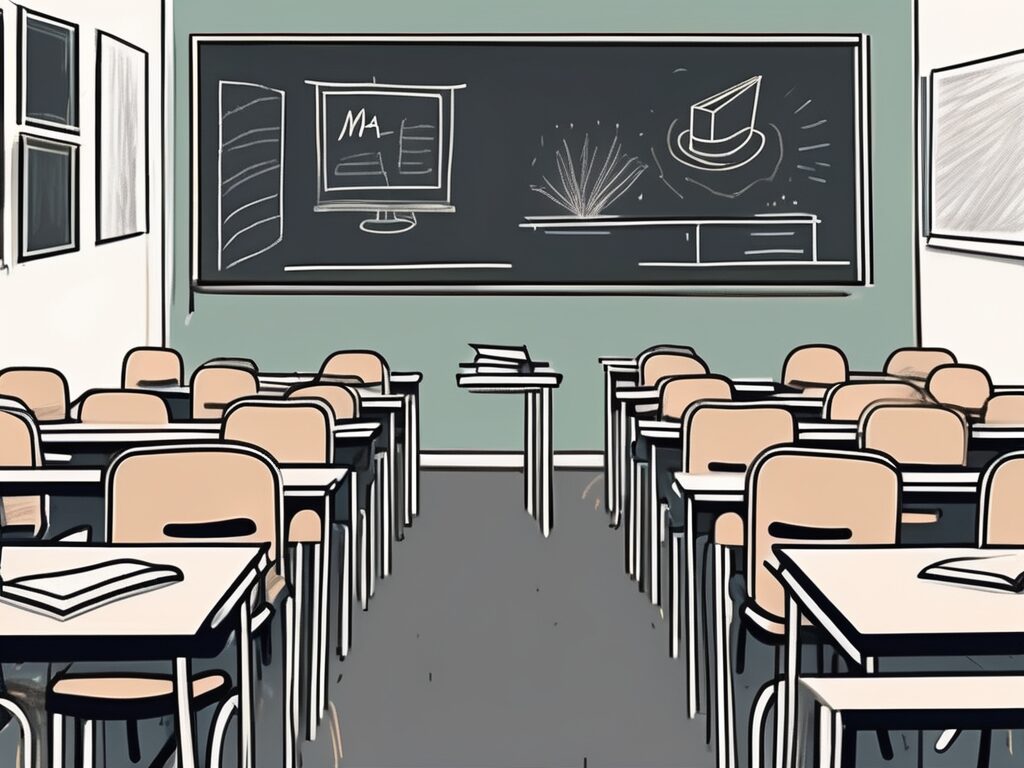Dubai, a bustling metropolis and global hub, is renowned for its architectural splendour, luxurious lifestyle, and high-quality education system. However, despite its many accolades, the city faces a significant challenge: low literacy rates. This issue is particularly perplexing for teachers who hold a Master’s degree in Education, as they are equipped with the knowledge and skills to facilitate effective learning. So, what could be the reasons behind this paradox? Let’s delve into six possible explanations.
1. Language Barriers
As an international city, Dubai is a melting pot of cultures, with residents hailing from all corners of the globe. This diversity, while enriching, can also pose a challenge in the educational sphere. Many students in Dubai are non-native English speakers, which can hinder their ability to grasp the language fully, leading to lower literacy rates.
Teachers with a Master’s degree in Education, despite their advanced training, may struggle to overcome this barrier. Teaching English to non-native speakers requires specific techniques and strategies, which may not be covered in a general MA Education programme. Therefore, the language barrier is a significant factor contributing to low literacy rates in Dubai.
2. Socioeconomic Factors
While Dubai is often associated with wealth and luxury, not all residents enjoy these privileges. Socioeconomic disparities can impact a child’s access to quality education and resources, leading to lower literacy rates. For instance, children from low-income families may not have access to books or private tutoring, which can hinder their literacy development.
Teachers, even those with a Master’s degree in Education, may find it challenging to bridge this gap. They may lack the resources or support to provide additional help to students from disadvantaged backgrounds, leading to a persistent literacy gap.
3. Lack of Parental Involvement
Parental involvement plays a crucial role in a child’s educational journey. Parents who actively participate in their child’s learning can significantly boost their literacy skills. However, in Dubai, many parents work long hours and may not have the time or energy to engage in their child’s education.
Teachers, regardless of their qualifications, can only do so much within the confines of the classroom. Without the reinforcement of learning at home, students may struggle to develop strong literacy skills, contributing to the low literacy rates in Dubai.
4. Insufficient Teacher Training
While holding a Master’s degree in Education is a significant achievement, it does not necessarily equip teachers with all the skills needed to address literacy challenges. Teachers may require additional training in specific areas, such as teaching English as a second language or dealing with learning disabilities.
Without this specialised training, teachers may struggle to meet the diverse needs of their students, leading to lower literacy rates. Therefore, the education system in Dubai may need to invest more in continuous professional development for teachers.
5. Large Class Sizes
Dubai’s booming population has led to larger class sizes in many schools. This increase can make it difficult for teachers to provide individual attention to each student, which is crucial for developing literacy skills. Even highly qualified teachers may struggle to manage large classes effectively, leading to lower literacy rates.
Reducing class sizes could be a potential solution to this issue. Smaller classes would allow teachers to spend more time with each student, providing personalised instruction and feedback, which could boost literacy rates.
6. Curriculum Issues
The curriculum used in Dubai’s schools may also contribute to low literacy rates. If the curriculum is not adequately tailored to the needs of the diverse student population, it may not effectively develop literacy skills. Teachers, even those with a Master’s degree in Education, can only teach as effectively as the curriculum allows.
Therefore, a review and possible revision of the curriculum could be beneficial. A more inclusive and flexible curriculum could cater to the diverse needs of students, helping to improve literacy rates in Dubai.
In conclusion, while Dubai boasts a high-quality education system, it faces significant challenges in improving literacy rates. These challenges are multifaceted, involving language barriers, socioeconomic factors, parental involvement, teacher training, class sizes, and curriculum issues. Addressing these issues will require concerted efforts from educators, parents, and policymakers alike. However, with the right strategies and resources, there is hope for a brighter educational future in Dubai.
Enhance Your Educational Impact with iQTS
Understanding the challenges of low literacy rates in Dubai, educators equipped with a Master’s degree in Education are in a prime position to make a significant impact. The IQTS at UWE offers the International Qualified Teacher Status (iQTS) Programme, specifically designed to elevate your professional development and address the barriers that may hinder progress in international education settings. With the iQTS, you can expect enhanced career progression, increased promotion rates, and a substantial salary boost. Join a thriving community of professionals, gain a deep understanding of global education systems, and enjoy the flexibility of online study tailored to your busy schedule. Make Your Next Step towards a more impactful teaching career with iQTS.

